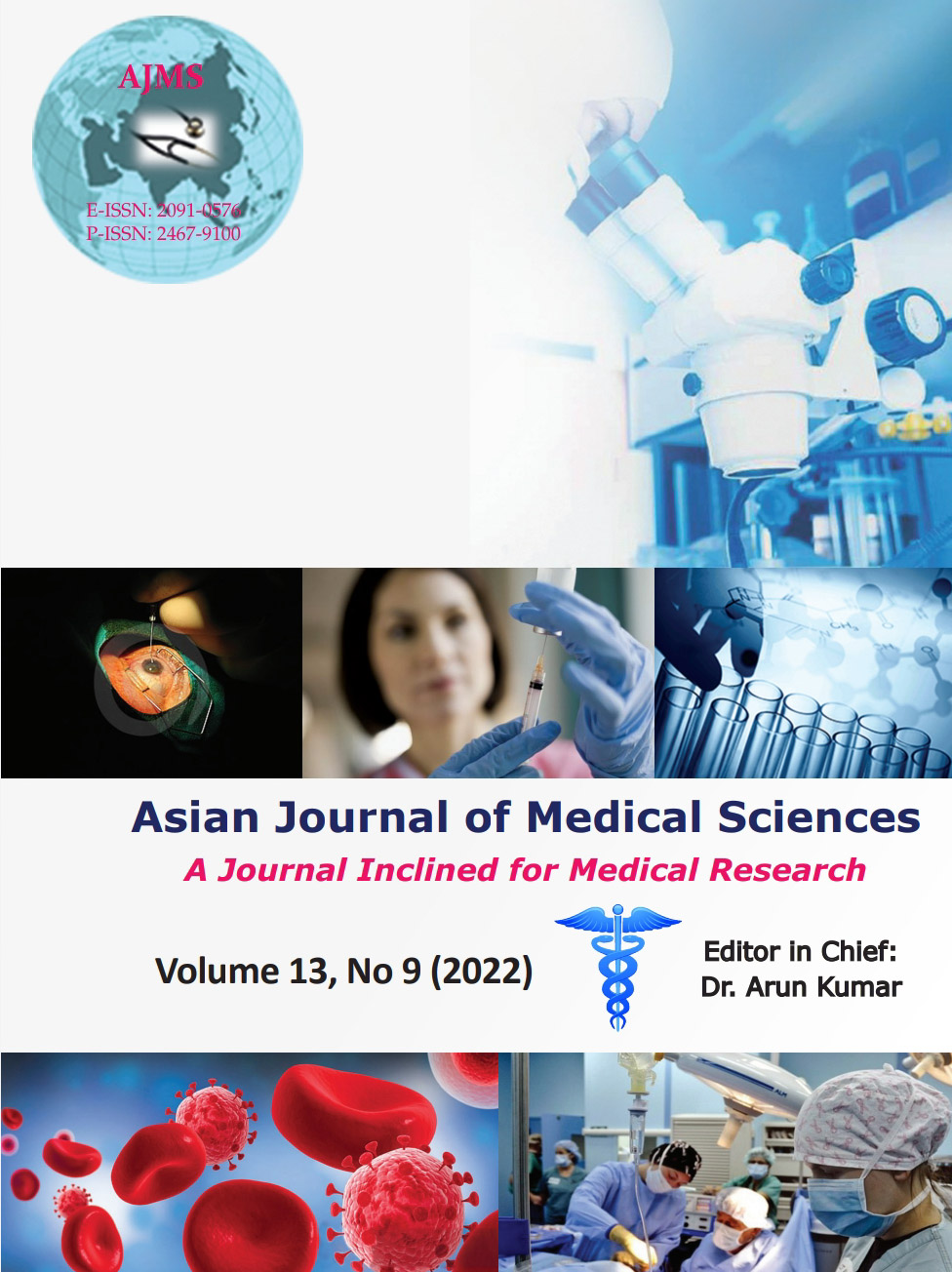A prospective observational study on maternal thyroid-stimulating hormone and its impact on maternal and perinatal outcome
Keywords:
Subclinical thyroid disorder; Enzyme-linked immune sorbent assay, Thyroid function test; Thyroid-stimulating hormone receptor antibodiesAbstract
Background: Numerous hormonal changes and metabolic demands occur during pregnancy, resulting in complex changes in maternal thyroid function. Thyroid disorder is the second most common endocrine disorder found in pregnancy next to the diabetes group. It affects 1–2% of women of reproductive age. Overt hypothyroidism complicates 0.3–0.5% of pregnancies. The incidence of subclinical hypothyroidism in pregnant women is about 2–3%. Hyperthyroidism is present in 0.1–0.4%.
Aims and Objectives: The aim of the study was to assess the maternal thyroid function test during pregnancy and its effect on maternal and fetal outcomes.
Materials and Methods: A prospective observational study was conducted in the Department of Obstetrics and Gynaecology at Dhanalakshmi Srinivasan Medical College and Hospital, Tamil Nadu over a period of 1 year February 2019 to January 2020. The study is to screen pregnant women for thyroid disorders based on their serum thyroid stimulating hormone (TSH) at the first antenatal visit and its impact on maternal and perinatal outcomes.
Results: In our study, overall thyroid abnormality incidence was found to be 5.5%. It is statistically significant (P<0.001). Subclinical hypothyroid was found as a major thyroid disorder in the study population (significant P<0.002). In the study overt hyperthyroidism: 0.5%, subclinical hypothyroidism: 3.5%, primary hypothyroidism 1.5% was found. More than 54% of the study population had no high-risk factors and were found to have a thyroid disorder. In our study, maternal complications in women with thyroid disorders were analyzed. One woman with overt hypothyroidism, one with subclinical hypothyroidism developed mild preeclampsia. One hypothyroid woman had preterm labor at 32 weeks of gestational age. Maternal complications were less inadequately treated patients resulting in a normal incidence of these complications. In our study birth weight of the babies, <2.5 kg was 18.2%, 2.5–3 kg was 63.6%, and >3 kg was 18.2%. Perinatal outcomes were in terms of preterm, intrauterine growth restriction, low birthweight, and fetal distress.
Conclusion: All pregnant women irrespective of their low risks or high risks for a thyroid disorder should be screened for serum TSH at the first booking visit to prevent the maternal and perinatal complications of thyroid disorders and close monitoring and effective treatment could be provided to them.
Downloads
Downloads
Published
How to Cite
Issue
Section
License
Copyright (c) 2022 Asian Journal of Medical Sciences

This work is licensed under a Creative Commons Attribution-NonCommercial 4.0 International License.
Authors who publish with this journal agree to the following terms:
- The journal holds copyright and publishes the work under a Creative Commons CC-BY-NC license that permits use, distribution and reprduction in any medium, provided the original work is properly cited and is not used for commercial purposes. The journal should be recognised as the original publisher of this work.
- Authors are able to enter into separate, additional contractual arrangements for the non-exclusive distribution of the journal's published version of the work (e.g., post it to an institutional repository or publish it in a book), with an acknowledgement of its initial publication in this journal.
- Authors are permitted and encouraged to post their work online (e.g., in institutional repositories or on their website) prior to and during the submission process, as it can lead to productive exchanges, as well as earlier and greater citation of published work (See The Effect of Open Access).




